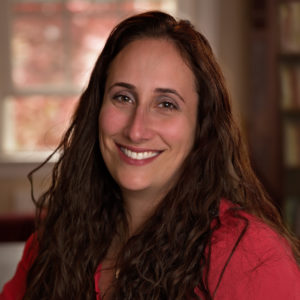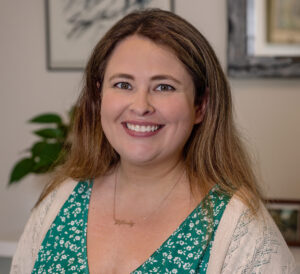
Emily Bly, PhD
Licensed Clinical Psychologist, Founder and Clinical Director
Dr. Bly works from the premise that comfort and safety in the relationship between psychologist and client is essential to change and growth. Her style is warm, interactive, respectful, real, and above all collaborative. Dr. Bly has found therapy to be most effective when both the psychologist and the client are working together to increase insight and to identify realistic goals as well as the most helpful means of reaching those goals. She endeavors to bring to clients a focused dedication, a sense of humor and an abiding belief, through experience, that change and growth are possible.
One of the most important keys to changing life patterns is the enhancement of insight and self-knowledge, the fundamental components of what is called a psychodynamic approach. Helping people in the pursuit of tangible goals is the hallmark of the systematic method known as cognitive behavioral (CBT) therapy. Dr. Bly’s treatment integrates these methods in a combined approach that she believes offers the most flexibility in designing a customized treatment that can be adapted to an individual’s unique set of life circumstances.

A. Jordan Wright, PhD, ABAP
Licensed Clinical Psychologist, Assessment Director
Dr. Wright is a board-certified assessment psychologist who consults widely in the assessment and evaluation field. He received his Ph.D. from Columbia University, as well as a Master’s in Psychology in Education from Teachers College, Columbia University. He is currently on faculty in the Ph.D. program in psychology at New York University, where he founded and runs the Center for Counseling and Community Wellbeing, as well as teaching and supervising psychological testing and assessment for the doctoral students.
Dr. Wright wrote the sixth edition of the Handbook of Psychological Assessment (2016), the most widely used textbook in the field on the topic. He has also published several other books on assessment, including Conducting Psychological Assessment: A Guide for Practitioners (2nd Edition; 2020), the Essentials of Psychological Assessment Supervision (2019), and the Essentials of Psychological Tele-Assessment (2021). Additionally, he has written many articles on the topic of psychological assessment, including on neuropsychological assessment of ADHD (in Clinical Child Psychology and Psychiatry, 2021) and education and training in psychological assessment (in the American Psychologist, 2020). He is a fellow of the Society for Personality Assessment and the American Academy of Assessment Psychology, as well as serving on the board of the American Board of Assessment Psychology and having been a past president of the Assessment section of the American Psychological Association. He has also written widely on issues of LGBTQ+ psychology and other aspects of psychotherapy.

Marisa Picheny, PsyD
Licensed School/Clinical Child Psychologist
Dr. Picheny believes that the initial focus of treatment is to create a strong therapeutic alliance, such that each patient feels a sense of comfort walking into the therapy room and feels safe engaging and communicating in treatment. As a therapist, Dr. Picheny is thoughtful, deeply empathic, and displays a strong and clearheaded clinical sensibility. She focuses on understanding the history of each of her clients, as well as the systems in which they function, and utilizes both psychodynamic and evidence based approaches to address the challenges that each patient faces. Dr. Picheny maintains a bright outlook and demeanor, which positively impacts those who come into contact with her.

Gerard Micera, PsyD
Licensed Clinical Psychologist
Dr. Micera believes that within every individual lies the potential to achieve personal goals. The therapeutic process fosters awareness and insight which serve to help in meeting those goals by providing a wider range of available options . He views psychotherapy as a collaborative process in which client and therapist work together, honestly and creatively, exploring various pathways leading to effective solutions. Dr. Micera recognizes the uniqueness of each client and supports individualized treatments catered to each client’s specific needs. With over 20 years of experience as a teacher of the performing arts, he utilizes a warm, humanistic approach and a sense of humor. Dr. Micera incorporates a variety of clinical methods into his practice – from more structured treatments, such as cognitive-behavioral strategies, to more creative interventions, all designed to increase self-awareness and motivate change.

Melissa Klay, PhD, LCAT,ATR-BC
Licensed Clinical Psychologist and Art Therapist
Dr. Klay believes that the decision to enter treatment is a significant first step towards the healing process. The importance of building a solid and supportive therapeutic alliance with the client whether adult, child, teen, or family is essential and reflects Dr. Klay’s therapeutic approach to relationship building. Whether through verbal or visual imagery, Dr. Klay tries to help individuals better understand their challenges and helps find alternative solutions when facing these obstacles. Dr. Klay is trained in CBT, DBT and psychodynamic approaches and utilizes an integrative and flexible approach to meet the needs of her clients.

Jessica Duffy, LCSW
Licensed Clinical Social Worker
Jessica Duffy’s passion for unbiased support and meeting people “where they are” helps to foster a therapeutic environment where clients can feel supported and heard. Jessica not only has a broad knowledge of evidence based approaches such as cognitive behavioral therapy and acceptance/commitment therapy, she is also a firm believer in the healing influence of the alliance between therapist and client throughout the therapeutic process. Working collaboratively to create a person centered treatment plan, Jessica is dedicated to empowering clients to move forward with increased self-regulation and mastery over their lives.

Eva Leighton, PhD
Licensed Clinical Psychologist
Dr. Eva Leighton believes that successful therapy is built on a foundation of deep trust and close collaboration between the client and the therapist. Her warm and supportive style also embraces humor as a path to discovery and acceptance. Dr. Leighton builds an in-depth understanding of the root causes of each client’s unique problems using theories from developmental psychology and psychodynamic psychotherap

Nofar Glisko, PsyD
Postdoctoral Fellow, Clinical Psychologist
Dr. Nofar Glisko understands that sometimes stressors overwhelm our capacity to live meaningful and fulfilling lives. Through her clinical work, Dr. Glisko has found that many individuals know what they must do to succeed yet they often face challenges making productive use of this knowledge because of negative self-beliefs and difficulties managing emotions. She believes the therapeutic relationship can provide clients with a safe and supportive space to begin to resolve these contradictions. Her psychodynamic background has instilled in her the importance of considering a person’s past and the underlying factors contributing to obstacles. She believes the client’s history holds valuable insights into their potential for healing and personal growth. She strives to help them uncover hidden strengths and resources which, combined with powerful emotion management tools, can pave the way toward self-discovery and fulfillment.

Allison Shanley, PsyD
Postdoctoral Fellow, Clinical Psychologist
Dr. Allison Shanley’s therapeutic goal is to provide a warm, welcoming, and safe space for all clients to feel at ease and allow for their desired treatment goals to be achieved. Her empathetic and grounded approach is designed to allow for that level of comfort to be achieved. Dr. Shanley uses an eclectic style to develop a treatment plan that draws from her extensive experience with a variety of theoretical orientations, including cognitive-behavioral therapy (CBT), person-centered and psychodynamic therapy.

Christina Wawrowski, PsyD
Postdoctoral Fellow, Clinical Psychologist
Dr. Christina Wawrowski understands that starting therapy can feel daunting, especially when trying to find the right therapist. She strives to create a safe, authentic, and non-judgmental space where you can express yourself freely. The therapeutic relationship will be a unique connection, tailored to your specific needs. Dr. Wawrowski’s integrative approach combines Cognitive Behavioral Therapy (CBT), Psychodynamic, and Client-Centered methods, providing personalized care in a supportive and collaborative environment that fosters personal growth and healing.

Kaitlin Carson, PhD
Postdoctoral Fellow, Clinical Psychologist, Assessment Specialist
Dr. Kaitlin Carson is a Post-Doctoral Fellow in clinical neuropsychology. Dr. Carson has experience in providing psychological, psychoeducational, and neuropsychological evaluations for children, adolescents, and adults with a variety of developmental, socio-emotional, neurological, and medical conditions. Through her training in academic medical centers in neurology, psychiatry, and education, Dr. Carson has learned to integrate information from various perspectives to best help children and families receive the services and accommodations they need. Additionally, through her work with diverse patients, Dr. Carson has learned to incorporate multicultural differences in her work to best help each individual child and family.

Alissa Huff
Art Therapy Intern
Alissa Huff is a Master’s student in Creative Arts Therapy at Pratt University and joins PPG under the supervision of Dr. Melissa Klay, Art Therapist and Clinical Psychologist. Alissa’s approach to art therapy is grounded in empathy and an unwavering belief in the healing power of creativity. By combining her artistic background with structured therapeutic practices, she strives to create a safe, supportive environment where clients can explore their emotions and achieve meaningful progress.
